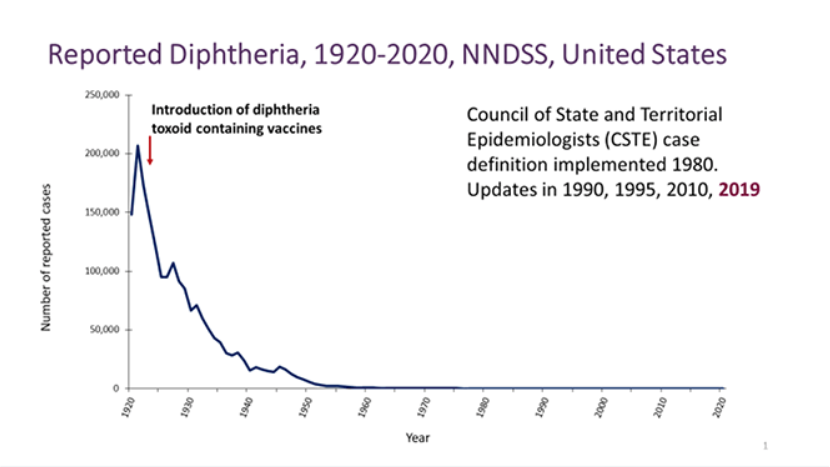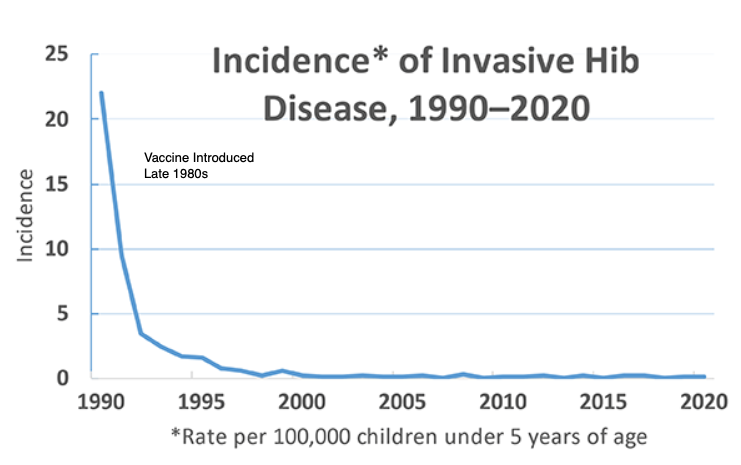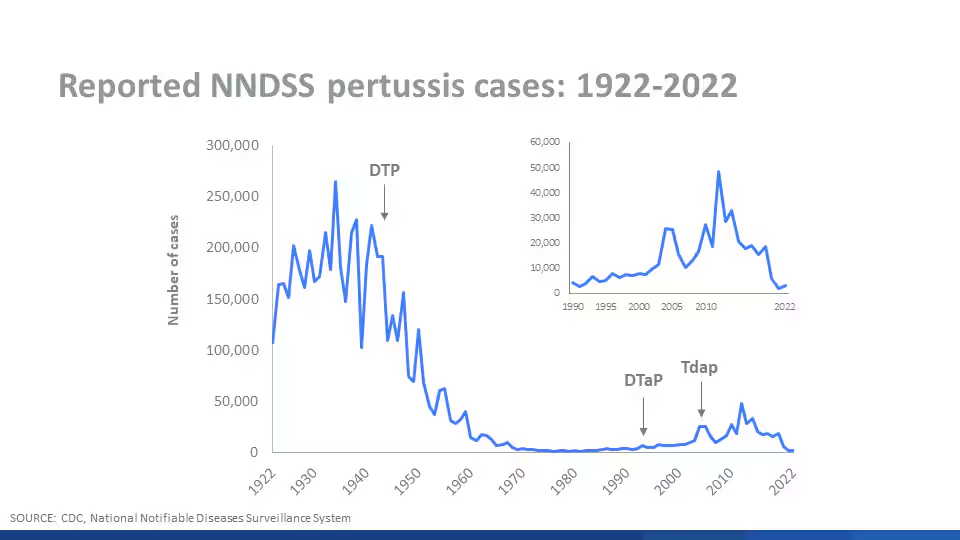Vaccines
Introduction

Vaccines
Vaccines have revolutionized modern medicine. Many horrible diseases that have disfigured, crippled, and killed people, have been completely or nearly eradicated through the use of vaccines. However, we must remain vigilant because until these diseases are eradicated worldwide, they can be reintroduced into our country. Due to reduced vaccination rates, measles is once again on the rise after being eradicated in the U.S. The ease and speed of airplane travel means that diseases can spread to far flung places before the infected person even knows they are sick. Diseases don't stop at borders. For both humanitarian and purely defensive reasons, we need to combat them worldwide.
How do vaccines work?
Vaccines work by injecting killed or weakened (attenuated) versions of the infectious agent, or of harmless parts of it, into the body. This is not dangerous to a healthy person, though the body sometimes has a mild reaction such as soreness at the injection site, aches, fever, or chills. The body's natural immune system identifies the foreign agent and builds antibodies against it. Later, if a person becomes infected by the live strain, the body reacts more quickly because the germ is recognized and the antibodies are already built, so they attack the germ before it can get a foothold and do serious harm.
What is "herd immunity"?
Not everyone can get vaccinated. The very old, the very young, and the immune comprimised may suffer ill effects from vaccination, or may not be able to build antibodies. However, if enough people around them are vaccinated, the disease cannot spread to the vulnerable members of the population. The strong members of the herd create a shield around the weak.
What determines vaccine effectiveness?
Several factors determine how well a vaccine works.
- Efficacy of the vaccine. Not all vaccines are 100% effective, but they can still reduce your odds of getting sick, or result in a milder version of the illness.
- Percentage of the population that is vaccinated. The more people who are vaccinated, the less chance of spread.
- The number of infected individuals. If many people are infected, the disease will find ways to spread among the unvaccinated, weak (often the old and young), and sick.
- Degree of contagiousness. Some diseases are extremely contagious and can infect anyone in proximity. Others require prolonged exposure or direct contact.
- Method of transmission. Knowing how a disease spreads makes it easier to control with simple practices such as hand washing, wearing masks, using condoms in the case of STDs.
- Ability of the disease to mutate/evolve and and avoid detection by the body's immune system. In some cases, there may be multiple strains in the population at the same time.
Why is there fear or skepticism about vaccines?
Some people are intimidated by needles. Some worry about the ingredients of a vaccine. Some worry that injecting foreign material into the body is dangerous (though tattoos remain popular!). Some people have believed mis-information (mistaken claims) and dis-information (deliberate intent to mislead). Some people believe that a healthy person can fight off these diseases, and while that may in some cases be true, they can still spread it to those who are more vulnerable. Some mistakenly believe that a wholesome diet and regular exercise are all that is needed to stay healthy. Some people think, because they had a mild case of chicken pox, mumps, or measles as a child, that it's relatively harmless, not realizing that severe cases can lead to permanent disfigurement and even death. Some diseases that are mild for children can have much more severe consequences if contracted as an adult, and vice-versa. Some people have grown complacent and don't feel the need to get vaccinated, precisely because vaccines have been so effective at preventing the spread of disease. Most people in this country have not seen first hand the effects of these horrible and vaccine-preventable diseases. The truth is that vaccines are heavily tested, safe, and effective when taken as directed. If you have concerns, consult a medical professional.
I heard someone say they got the flu shot and still got the flu.
Yes, that can happen. The flu virus is one that mutates rapidly to evade detection by the body. There are multiple strains of flu in the wild and the vaccine makers have to try to predict which one will become dominant each season. Sometimes they get it wrong. Still, a flu shot can reduce the severity of the flu even if the wrong strain was targeted, because they act in similar ways. Some people who got the COVID-19 vaccine still got sick, and some even died, but far fewer than those who went unvaccinated. Those who choose not to get vaccinated risk not only their own health but the health of those around them.
How long do vaccinations last?
It depends on the vaccine. Some fade over time and require boosters. Others protect you for a lifetime. We only vaccinate against diseases that are common in the U.S. so you should consult the C.D.C. and your doctor if you will be travelling outside the U.S., particularly to areas where certain diseases that have been eradicated here are still common. This can both protect you and prevent you bringing something back to a potentially vulnerable population.
What are some common vaccines in the U.S.?
| Vaccine Abbreviation | Full Name | Notes |
|---|---|---|
| DTaP/DTP/DT | Diphtheria, Tetanus (Lockjaw), Pertussis (Whooping Cough) | combo vaccines against 2 or more |
| Td/Tdap | Tetanus, Diphtheria, Pertussis | combo vaccines against 2 or more |
| Polio | Polio | |
| MMR | Measles (Rubeola), Mumps, Rubella (German Measles) | combo vaccine |
| Hib | Haemophilus Influenzae B | |
| Hep A | Hepatitis A | |
| Hep B | Hepatitis B | |
| Varicella | Varicella (Chickenpox) | |
| Rotavirus | Rotavirus | |
| PCV7 | Pneumococcal | |
| PPV23 | Pneumococcal | |
| Influenza | Influenza (Flu) | |
| BCG | Tuberculosis | not commonly given in the U.S. |
| HPV | Human Papilloma Virus | |
| Vi/Ty21a/TCV | Typhoid | recommended for some travellers |
| COVID-19 | COVID-19 | mRNA vaccines (Phizer and Moderna) are the most effective |
| Zoster | Shingles (Zoster) | chickenpox recurrence |
| Rabies | Rabies | deadly if untreated |
| RSV | Respiratory Syncytial Virus | |
| Meningococcal ACWY | Meningococcal ACWY | |
| Meningococcal B | Meningococcal B | |
| M-pox | M-pox | in regions where prevalent |
| Dengue | Dengue | in regions where prevalent |
| no vaccine available | Zika | can cause birth defects during pregnancy |
View the CDC's recommended vaccine schedule for Birth to 6 years old | 7 - 18 years old | 19 and older | Pregnancy
How well do vaccines work?
Note when the vaccine was introduced and look at what happened to infection rates. When immunization rates are high, vaccines are very effective. These graphs are from the Center for Disease Control.



